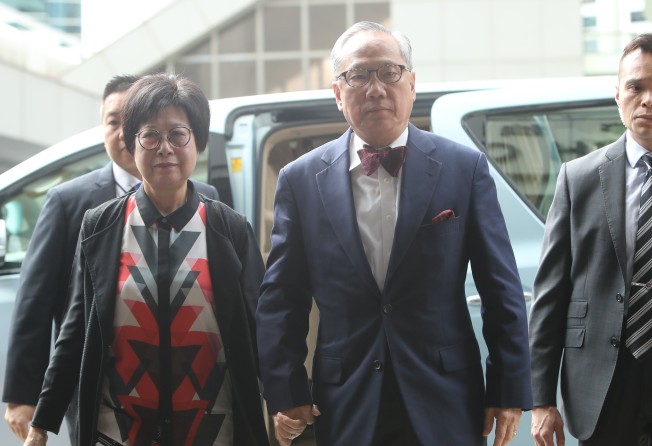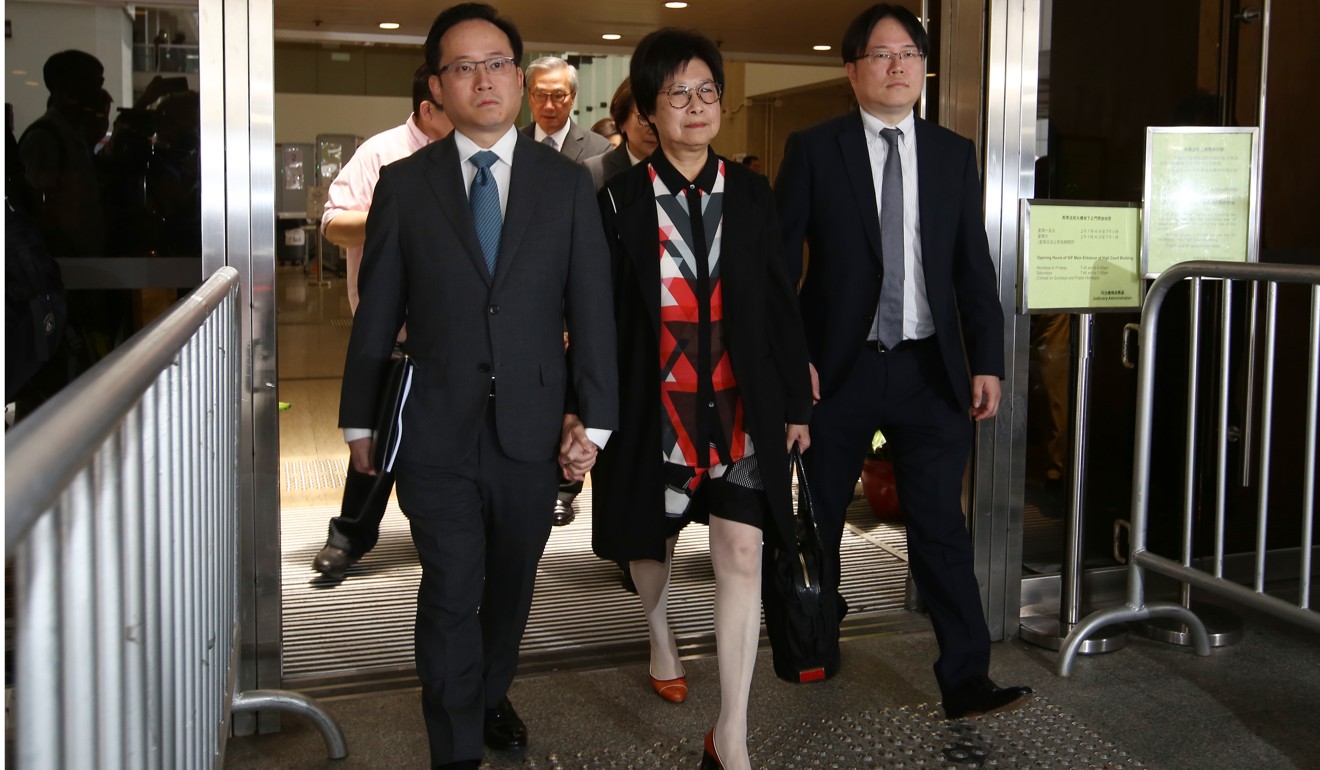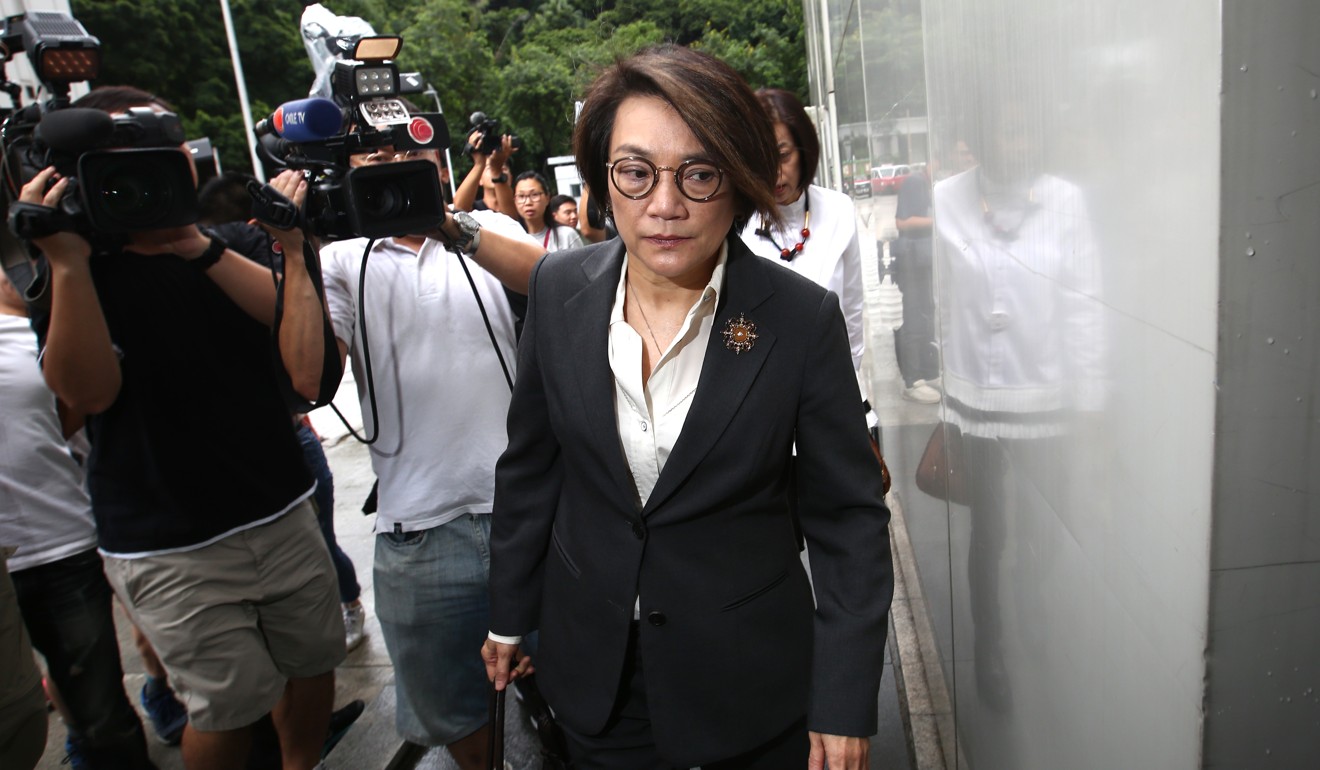Disgraced Hong Kong leader Donald Tsang’s brief return to public life ends with failed court appeal
Former chief executive abandoned low-profile approach while out on bail pending attempt to overturn misconduct conviction

From when he was charged three years ago to the day he became the first Hong Kong leader to serve a jail sentence last year, Donald Tsang Yam-kuen had largely kept a low profile.
The only time the ex-chief executive publicly addressed his supporters over his unprecedented fall from grace was when he was granted bail last April pending an appeal against his misconduct conviction.
Thanking his supporters, Tsang, 73, whose hair had gone noticeably greyer after he spent two months in solitary confinement, said outside court: “During this time, of course I experienced many heartaches that cannot be described in words.”
Since his release, however, the retired leader appeared to be on a different course – a more proactive one – as though he were less bothered by the toll the years-long prosecution had taken on him, his reputation and his health than before.
Just months after he was set free, Tsang, who had served as chief executive from 2005 to 2012, re-emerged on the fringes of the city’s political scene, weighing in on Hong Kong-mainland relations in television interviews and in articles written for the Post. He also attended the funeral of Lau Wong-fat, 80, an influential political figure representing the city’s rural communities.

This year, Tsang even turned up alongside his predecessors Tung Chee-wah and Leung Chun-ying, and his successor, Carrie Lam Cheng Yuet-ngor, at the annual flag-raising ceremony on July 1 to celebrate the city’s 1997 return to Chinese rule, a prominent event that Tsang, having just been convicted, missed last year.
This apparent return to normalcy came to an end on Friday, however, when the Court of Appeal rejected Tsang’s bid to overturn his conviction, meaning he would have to go back behind bars.
Tsang was found guilty by an 8-1 jury verdict of one count of misconduct in public office at the High Court in February last year, for which the presiding judge, Mr Andrew Chan Hing-wai, sentenced him to 20 months in jail. He was acquitted of another misconduct charge.
The jury failed to reach a verdict on a third charge for bribery, resulting in a second trial between September and November. The new jury also failed to produce a conclusive verdict, forcing prosecutors to eventually give up their pursuit of the charge.

The case revolved around a three-storey luxury penthouse situated in a posh district in Shenzhen, China, which Tsang wanted to call his temporary retirement home after stepping down.
But Tsang, who started to negotiate a rental deal in 2010, failed to disclose the property, which was owned by a company chaired by mainland tycoon Bill Wong Cho-bau.
The then chief executive had at the time approved several licence applications by local radio station Wave Media, of which Wong was the majority shareholder. The prosecutors said the non-disclosure amounted to a conflict of interest, and thereby misconduct.
Tsang lodged an appeal in March last year and was granted bail in April after serving two months in jail, which were marked by a flurry of hospital visits by the devout Catholic, who was suffering from respiratory conditions.
In an unusual footnote to the court battles, some of Tsang’s influential supporters ended up crossing swords with the presiding judge.
At the end of the second trial, Mr Justice Chan took issue with famous individuals turning up at court in support of Tsang, in what he suspected was a publicity stunt to impress the jury.
These included former financial secretary John Tsang Chun-wah, former secretary for justice Wong Yan-lung, vicar general of the Hong Kong Catholic Diocese Reverend Dominic Chan Chi-ming, and radio host and political commentator Chip Tsao.
John Tsang and Wong both issued statements hitting back at the judge’s allegations. The city’s top barrister body, the Bar Association, weighed in on the dispute, saying that the accused parties had not been given a chance to respond to Chan’s observation.